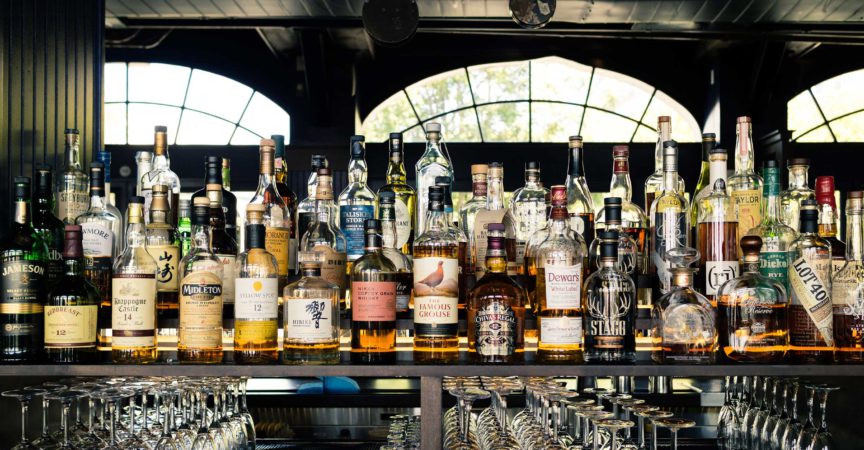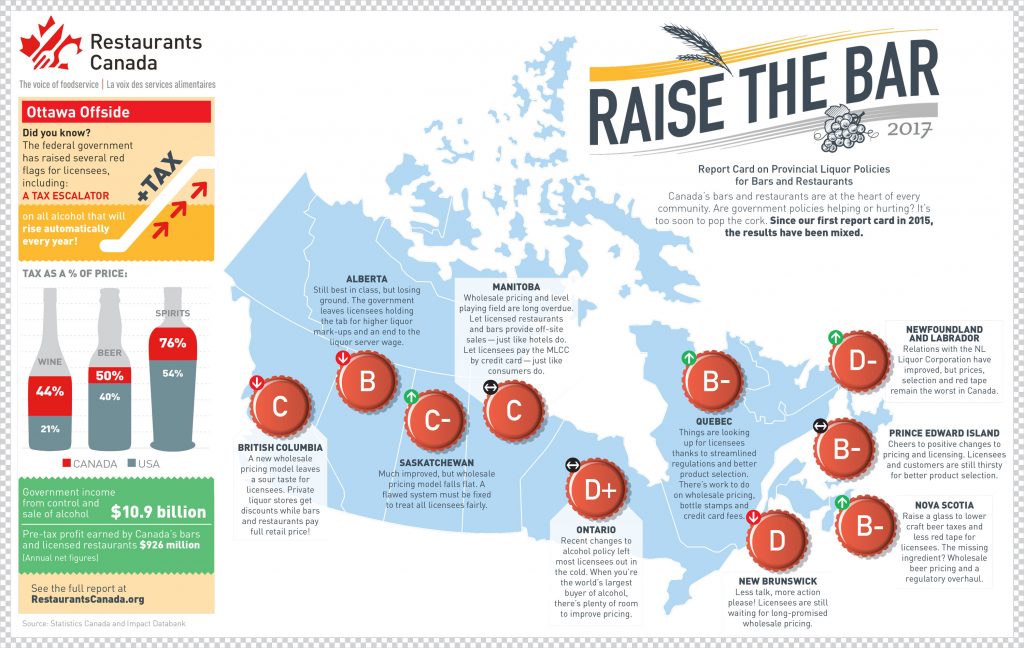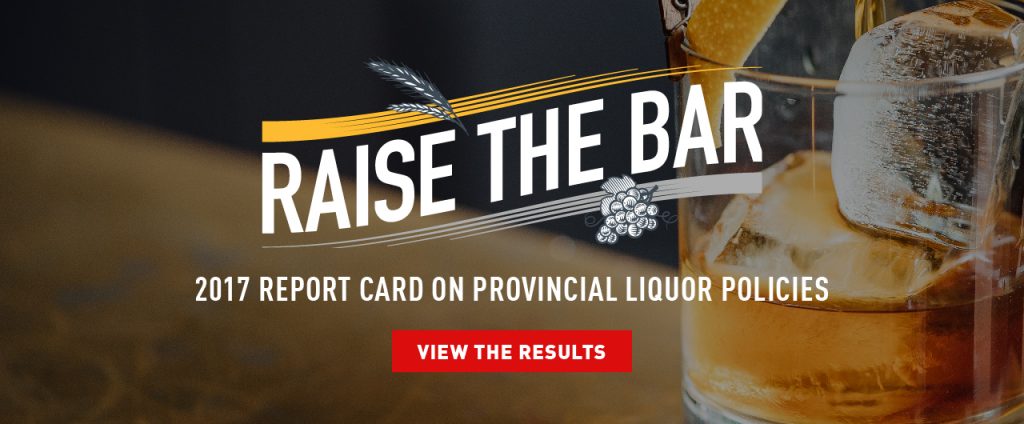Raise the Bar report card is stirring up change
The restaurant business is not for the faint of heart, and if you’re a licensee, it comes with an extra shot of challenges. From outdated liquor laws to exorbitant tax rates, it often seems like Ottawa and the provinces want to slam the door on Canadian hospitality.
It’s a short-sighted view, when you consider that licensed restaurants and bars account for 48,000 businesses, directly employ 560,000 Canadians, and generate $8.2 billion a year in economic activity. They also revitalize neighbourhoods, attract tourists and visitors, and provide a safe, regulated environment for customers to enjoy a drink with friends.
It all adds up to a winning recipe, but in many cases, our laws and regulations aren’t keeping pace. And, undoing policies that are rooted in prohibition-era thinking takes time.
Restaurants Canada started shaking things up in 2015 with the first-ever Raise the Bar report card on provincial liquor policies. The report graded each province in four categories: pricing and selection; licensing and regulation; customer sales; and political and regulatory activity. It also factored in feedback from licensed members who completed an opinion survey.
Raise the Bar certainly raised some eyebrows among politicians and public servants. “A national report card makes it crystal clear as to which provinces are forward-thinking when it comes to beverage alcohol policy and which ones are behind the times,” says Joyce Reynolds, executive vice president of government affairs for Restaurants Canada. “After we issued the first report card in 2015, provincial politicians and the liquor corporations started asking us what they could do to earn a better grade. It was a great conversation-starter.”
The conversations led to positive action in many provinces. The 2017 Raise the Bar report card has just been released, and it awards an improved grade to four provinces, status quo to three and a worse grade to three. “While most provinces have improved or stabilized over the past two years, we still have a long way to go to create a fair playing field for licensees,” says Reynolds.
The number one issue? In most provinces, it’s price. The lack of wholesale pricing is getting harder and harder for licensees to swallow. As one survey respondent noted: “Where else on the planet do you pay more than retail to resell to your customers at a much higher price than they could get it themselves?”
If you’re fed up with outdated regulations and unfair pricing, let your provincial officials know.
For more information and to download our Raise the Bar report card or infographic, visit restaurantscanada.org/raise-the-bar-2017.











